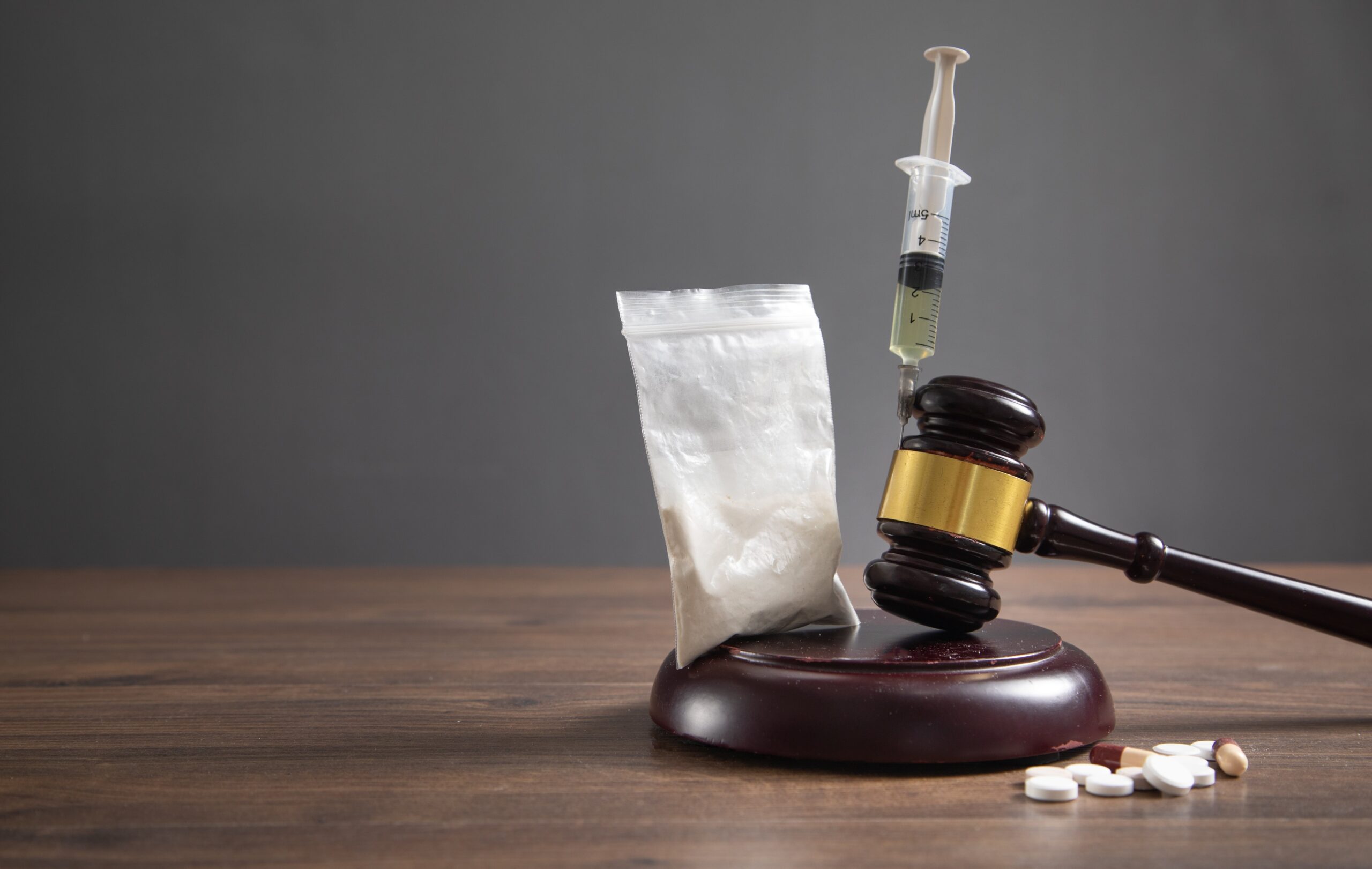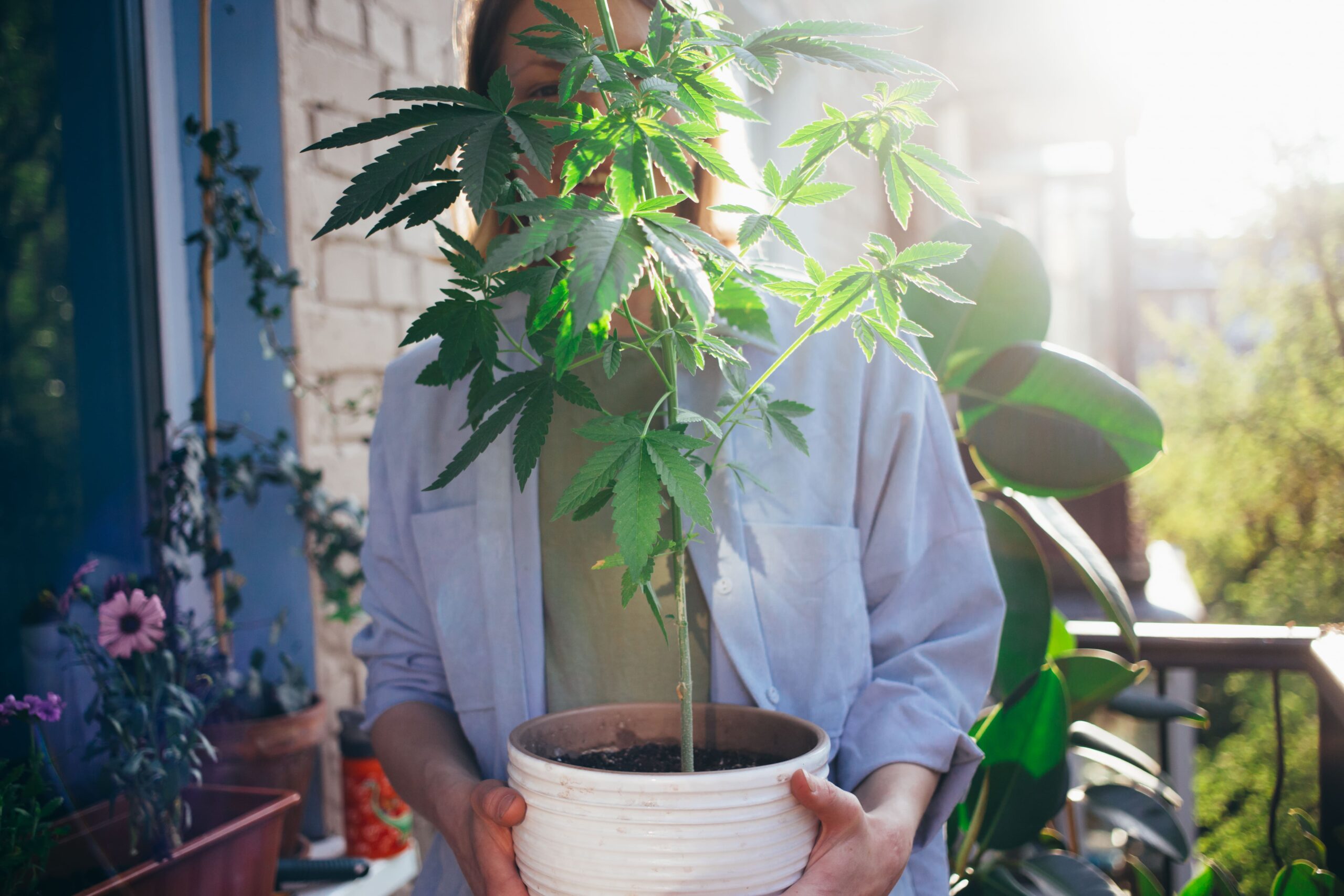CULTIVATING PROHIBITED PLANT CHARGES IN NSW
In NSW, it is a crime, carrying heavy penalties:
- To ‘cultivate’ a ‘prohibited plant’ either outside or by ‘enhanced indoor means’; or
- To supply a prohibited plant; or
- To possess a prohibited plant.
It is also a crime, attracting heavier penalties if you:
- Cultivate a prohibited plant for a ‘commercial purpose’; or
- Cultivate a prohibited plant by ‘enhanced indoor means in the presence of a child’.
Our Specialist Drug Lawyers in Sydney can effortlessly assist you with all the Drug Offences by providing you with the right advice and information.
What Does ‘Cultivate’ Mean?
Cultivate means to either sow or scatter the seed produced by the prohibited plant. It also includes, to plant, grow, tend, nurture or harvest a prohibited plant. i.e. watering the plants is also considered ‘cultivating’.
What is ‘Cultivating by Enhanced Indoor Means’?
This involves cultivating a prohibited plant inside a structure or building where you:
- Apply artificial light or heat to; or
- Nurture the plant in nutrients-enriched water; or
- Suspend the plant’s roots and spray it with nutrient solution.
What is a ‘Prohibited Plant’?
A ‘prohibited plant’ includes a cannabis plant cultivated outside or by enhanced indoor means and includes, any growing plant of the genus Erythroxylon or of the species Papaver Somniferum, Papaver orientale or Papaver bracteatum.
What is Cultivating a Prohibited Plant for a ‘Commercial Purpose’?
To cultivate a prohibited plant for a commercial purpose means to cultivate a plant with the intention of either selling it or where you believe that someone else intends to sell it.
PENALTIES & SENTENCES FOR CULTIVATING IN NSW
Sentencing guidelines for cultivating prohibited plants vary depending on the quantity and whether it is done indoors or outdoors.
Penalties for Cultivate, Supply or Possess Prohibited Plants:
| Quantity | If Local Court | If District Court |
|---|---|---|
| Small Q | 2 years imprisonment and/or $5,500 fine | 10 years imprisonment and/or $220,000 fine |
| Indictable Q | 2 years imprisonment and/or $11,000 fine | 10 years imprisonment and/or $220,000 fine |
| Small Q | Cannot be dealt with in Local Court | 15 years imprisonment and/or $385,000 fine |
| Small Q | Cannot be dealt with in Local Court | 20 years imprisonment and/or $550,000 fine |
Penalties for Cultivating Prohibited Plants by Enhanced Indoor Means:
| Quantity | If Local Court | If District Court |
|---|---|---|
| Small Q | 2 years imprisonment and/or $5,500 fine | 10 years imprisonment and/or $220,000 fine |
| Indictable Q | 2 years imprisonment and/or $11,000 fine | 10 years imprisonment and/or $220,000 fine |
| Small Q | Cannot be dealt with in Local Court | 15 years imprisonment and/or $385,000 fine |
| Small Q | Cannot be dealt with in Local Court | 20 years imprisonment and/or $550,000 fine |
Penalties for Cultivating Prohibited Plants by Enhanced Indoor Means for Commercial Purpose:
| Quantity | If Local Court | If District Court |
|---|---|---|
| Small Q | Cannot be dealt with in Local Court | 10 years imprisonment and/or $220,000 fine |
| Indictable Q | Cannot be dealt with in Local Court | 10 years imprisonment and/or $220,000 fine |
| Small Q | Cannot be dealt with in Local Court | 15 years imprisonment and/or $385,000 fine |
| Small Q | Cannot be dealt with in Local Court | 20 years imprisonment and/or $550,000 fine |
Penalties for Cultivating Prohibited Plants by Enhanced Indoor Means in Presence of Child:
| Quantity | If Local Court | If District Court | For Commercial Purpose in District Court |
|---|---|---|---|
| Small Q | 2 years imprisonment and/or $5,500 fine | 12 years imprisonment and/or $264,000 fine | 18 years imprisonment and/or $462,000 fine |
| Indictable Q | 12 years imprisonment and/or $11,000 fine | 12 years imprisonment and/or $264,000 fine> | 18 years imprisonment and/or $462,000 fine |
| Small Q | Cannot be dealt with in Local Court | 18 years imprisonment and/or $462,000 fine | 18 years imprisonment and/or $462,000 fine |
| Small Q | Cannot be dealt with in Local Court | 24 years imprisonment and/or $660,000 fine | 24 years imprisonment and/or $660,000 fine |
Drug Quantity Categories for Cannabis Plants Cultivated by Enhanced Indoor Means:
| Prohibited Plant | Small Qty. | Traffickable | Indictable Qty. | Commercial Qty. | Large Commercial Qty. |
|---|---|---|---|---|---|
| Cannabis Plant | 5 | – | 50 | 50 | 200 |
Drug Quantity Categories for Cannabis Plants Cultivated Outside:
| Prohibited Plant | Small Qty. | Traffickable | Indictable Qty. | Commercial Qty. | Large Commercial Qty. |
|---|---|---|---|---|---|
| Cannabis Plant | 5 | – | 50 | 250 | 1000 |
TYPES OF PENALTIES THE COURT CAN IMPOSE
For anyone guilty of cultivating prohibited plants in NSW, or any other Drug Offence, a Judge or Magistrate will impose any one of the following types of available penalties for sentence:
- Section 10 Dismissal (non-conviction)
- Conditional Release Order with or without conviction
- Fine with conviction
- Community Correction Order with conviction
- Intensive Correction Order with conviction
- Full-Time Imprisonment with conviction
WHAT ARE THE DEFENCES?
You will be found not guilty of cultivating prohibited plants if:
- You did this under duress or necessity.
- You had possession of cannabis plant in accordance a prescription obtained from a doctor, nurse practitioner, midwife, dentist or vet.
- You did not know or suspect that it was a prohibited plant, and you couldn’t reasonably be expected to have known or suspected that it was a prohibited plant.
- You didn’t cultivate or knowingly take part in cultivating.
- The plant is not actually a prohibited plant.
- If you’re charged with cultivating by enhanced indoor means, and there is no evidence that you cultivated inside a building, nurtured or promoted the plants growths.
- If you’re charged with cultivating for a commercial purpose by enhanced indoor means, and there is no evidence that you intended to sell it; and there is no evidence that you were aware that anyone else intended to sell it.
- If this charge involves allegations that a child was exposed as a result of cultivating, you cannot be guilty if the exposure caused no health or safety danger to the child.
- You will be not guilty if the prosecution fails to prove any of the essential elements of the crime, listed below.
Your Options in Court
After pleading not guilty in court to a charge of cultivating prohibited plants, your case will eventually be adjourned to another day in court for a jury trial in the District Court or defended hearing in the Local Court.
The prosecution is required to give you or your lawyers with a copy of their evidence before the trial or hearing date.
The court will then hear evidence from each side (prosecution and defence) before determining a verdict of guilty or not guilty to the charge(s).
If a verdict of not guilty is returned, your cultivation charge will be dismissed and you will be acquitted.
If a verdict of guilt is returned, the court will then determine an appropriate penalty to impose as a sentence for the offence.
To be found guilty of cultivating prohibited plants under section 23(1), the prosecution must first prove:
- That you cultivated, supplied or possessed a prohibited plant (or knowingly taking part in it); and
- The weight/quantity falls within the quantity you are charged for i.e. small, indictable, commercial or large commercial quantity.
To be found guilty of cultivating by enhanced indoor means under section 23(1A), the prosecution must first prove:
- That you cultivated a prohibited plant (or knowingly took part in it); and
- You did this by enhanced indoor means; and
- You did this for a commercial purpose; and
- The weight/quantity falls within the quantity you are charged for i.e. small, indictable, commercial or large commercial quantity.
To be found guilty of cultivating by enhanced indoor means where a child has been exposed under section 23A, the prosecution must first prove:
- That you cultivated a prohibited plant (or knowingly took part in it); and
- You did this by enhanced indoor means; and
- As a result, the cultivation process or the substances stored for use in the cultivation process has exposed a child; and
- The weight/quantity falls within the quantity you are charged for i.e. small, indictable, commercial or large commercial quantity; or
- Where the weight/quantity falls within either the small quantity or indictable quantity, you cultivated for a commercial purpose.
You will be not guilty, and your charge dismissed if the prosecution fail to prove each element of the charge beyond reasonable doubt.
If you believe that the prosecution have insufficient evidence to prove any element of the offence, your lawyer can draft and send a document called, ‘legal representations’ to the prosecution outlining holes in their evidence– to negotiate to get the charge withdrawn early.
Read more about Pleading Not Guilty for other Drug Offences.
If pleading guilty in court to cultivating prohibited plants, the case will eventually get adjourned to another court date for sentence. Pleading Guilty for all other Drug Offenses.
On the sentence day, the court will hear what you wish to say in addition to any documents you wish to hand up before determining an appropriate penalty to impose.
The court will normally order an assessment report to be prepared for the sentence date.
You may ask the court for an adjournment for your sentence to be heard on another day if you require further time to be properly prepared for sentence.
The below outlines the main points on how to be best prepared for a sentence on cultivating prohibited plants, to maximise your chances at getting the best possible outcome.
25% Reduction in Penalty for Early Guilty Plea
The court will reduce your penalty by up to 25% if an early enough plea of guilty is entered in court.
This will lead to a better sentence outcome for a cultivating offence. The later the plea of guilty is entered in the proceedings, the smaller that discount will get. It is important to get prompt advice.
Good Character Letters
Gathering compelling character reference letters for the court to read on your sentence day can convince a Magistrate or Judge to impose a lighter penalty.
Character letters can be gathered from a friend, family, employer, colleague, partner, charity and/or religious organisation.
Such letters may outline your excellent character, any expression of your insight and remorse for the offence, in addition, it may outline any impact a conviction or imprisonment will have on your job and on any family dependants.
Letter of Apology
Using a well drafted apology letter for drug charges for the Court to read on your sentence day in court can also convince the court to impose a lenient penalty.
This letter should be drafted by you and may outline your expressions of insight and remorse for the offence, personal situation, including your employment, and any affect of a conviction or jail on your job or any family dependants.
Negotiate to drop charges
A cultivation charge can be withdrawn or downgraded early through successful and effective negotiations.
Negotiations commence when your lawyer drafts and sends the prosecution with a document outlining reasons why the charge be withdrawn called, ‘legal representations’. If any of the defences apply to your case, it may be worthwhile negotiating first.
Negotiate to change the police facts
The police set of facts is a document outlining the main details of your offence for the Judge or Magistrate in court to read. It’s mainly used to help determine the appropriate penalty to impose.
If you feel that the current state of the police facts sheet is incorrect, or you wish to delete to add portions into it, you may do so by effectively negotiating with the prosecution.
By changing the facts sheet to something more favourable to you, you can significantly improve your court outcome.
Psychologist Report
A well drafted psychologist or psychiatrist report to use in court for your sentence can significantly improve your court outcome, especially if it comes from a respected and experienced expert. Our team hand-pick the best expert for each case.
It is worth getting this report if you believe you were or are suffering a mental illness. A compelling report may express whether your decision to cultivate was contributed by your mental illness, your treatment and progress, and any compelling explanation for committing the offence.
We are Sydney’s leading criminal defence lawyers specialising in drug cases for over 2 decades. As a team of drug defence lawyers and barristers we’ve achieved a proven-track record of success with outstanding results, including:
- Getting serious drug charges withdrawn early through effective negotiations.
- Securing not guilty verdicts in complex jury trials.
- Avoiding full-time imprisonment, even after pleading guilty.
FAQ
‘Taking part in’ means, to take step(s) in the process of cultivating or supplying, or to provide or arrange finance for any of the steps in that process. It also includes, providing the premises for these things to take place in, where you are the owner or lessee or occupier of those premises.
The ‘standard non-parole period’ only applies where the offence is cultivating, supplying or possess a large commercial quantity of prohibited plants under section 23(2).
The standard non-parole period for cultivating, supplying or possessing a large commercial quantity of prohibited plants is 10-years.
The court is required to impose a ‘non-parole period’ and ‘parole period’ if a Judge or Magistrate imposes a full-time imprisonment sentence of more than 6-months.
The non-parole period represents the mandatory period the sentenced offender is required to remain in jail before he/she can be eligible for release back into the community on parole.
The parole period is the period he/she is eligible to be released on parole conditions for the remaining term of the sentence after the non-parole period expires.
Certain offences have a ‘standard non-parole period’. The standard non-parole period represents a guide for the courts to consider imposing in a sentence of imprisonment when determining an appropriate non-parole period for the offence.
The standard non-parole period is engaged only if the offending conduct is assessed by the court to fall in the middle of the range of objective seriousness for offences of cultivating prohibited plants.
This means, that the standard non-parole period is the prescribed standard minimum period of full-time jail before being eligible for release on parole.
A Magistrate or Judge will look at the factors outlined in the below table when trying to determine the most appropriate sentence to impose for an offence of cultivating illegal plants.
Sentencing Guidelines for Cultivating Prohibited Plants
| Any vulnerability | The courts generally incline towards imposing a more lenient sentence where the offender suffers a vulnerability, such as drug addiction, which contributes to committing this offence. |
| Extent of your involvement and sophistication | The less involved and sophisticated you were in the cultivation, the more lenient the sentence is likely to be in court. You are likely to get a heavier sentence if your level of involvement and sophistication is higher. |
| Period of offending | The shorter the period of cultivating, the lighter your sentence will likely be. This also means, that the sentence is likely to be heavier if you commit this offence over a long period of time. |
| Quantity of prohibited plants | As outlined earlier, the maximum penalties depend on the quantity of the prohibited plants. The smaller the quantity, the more lenient the sentence is likely to be. |
 (02) 8606 2218
(02) 8606 2218








